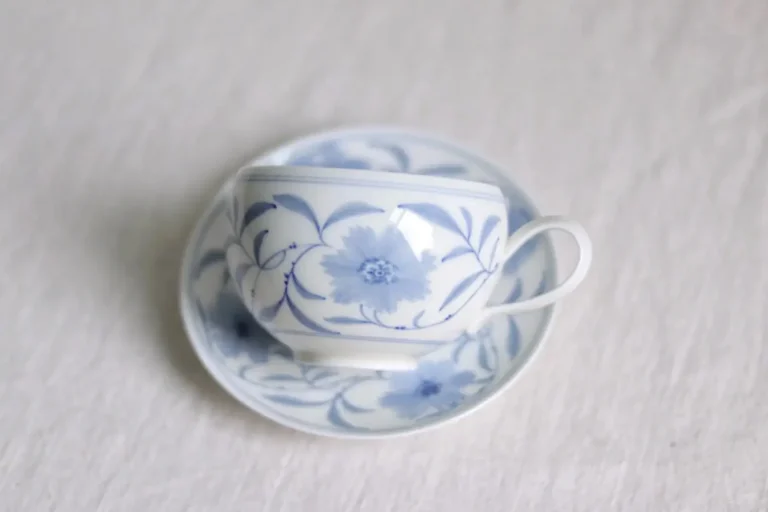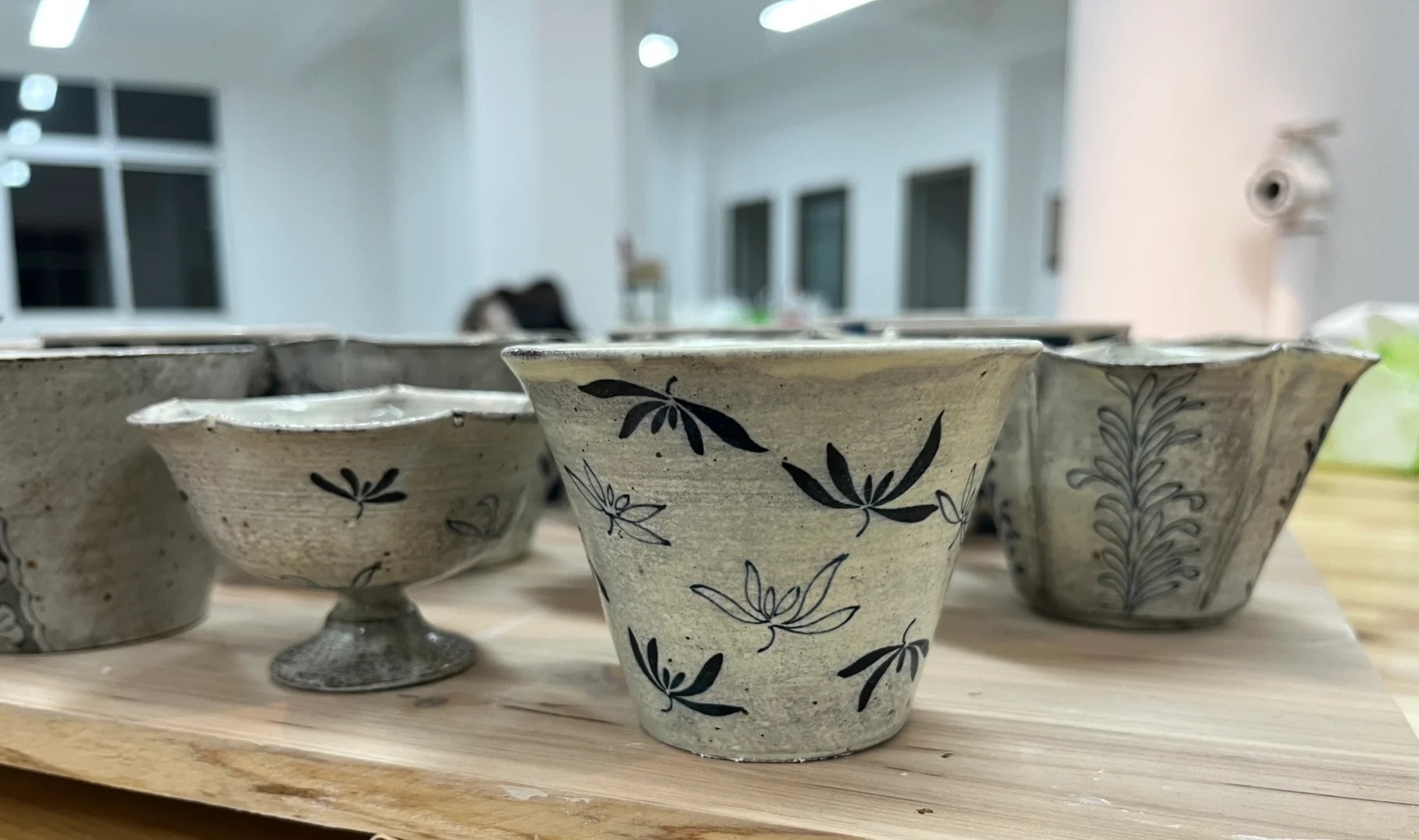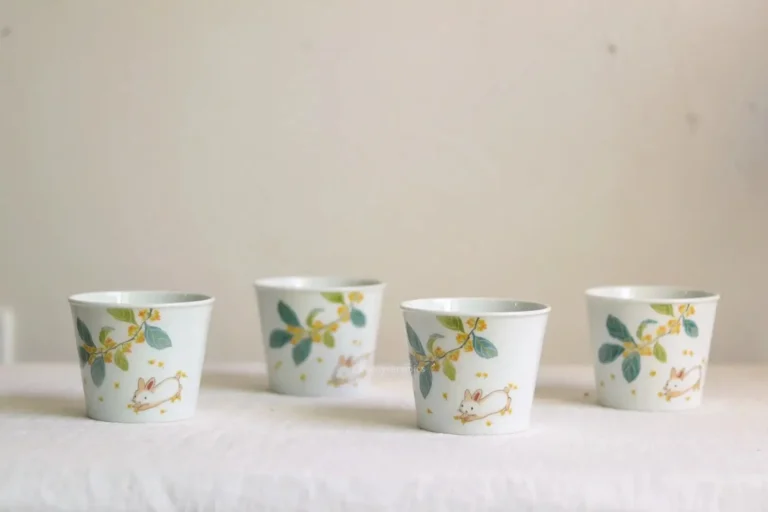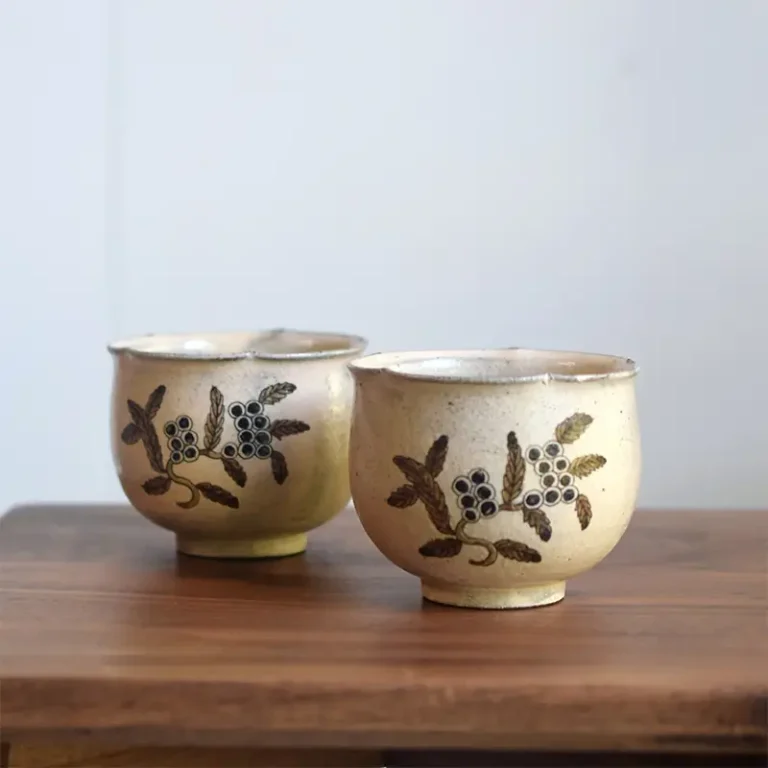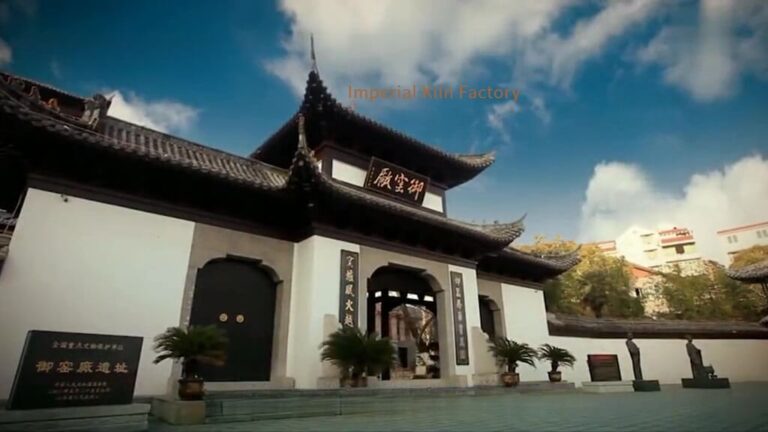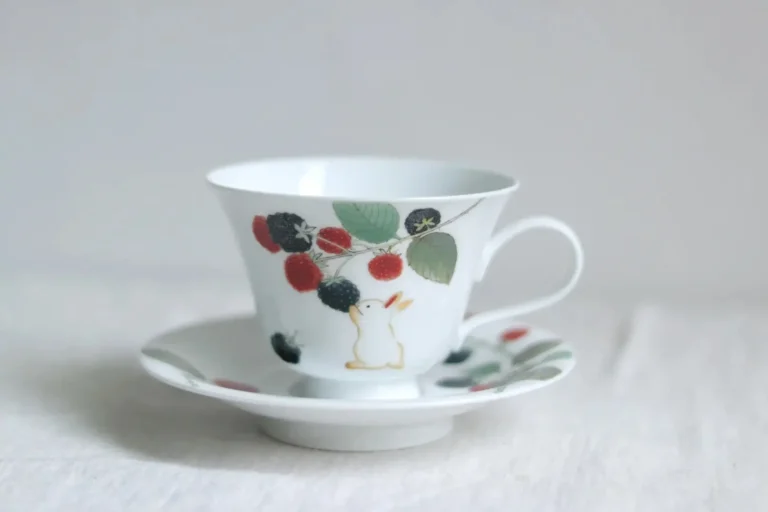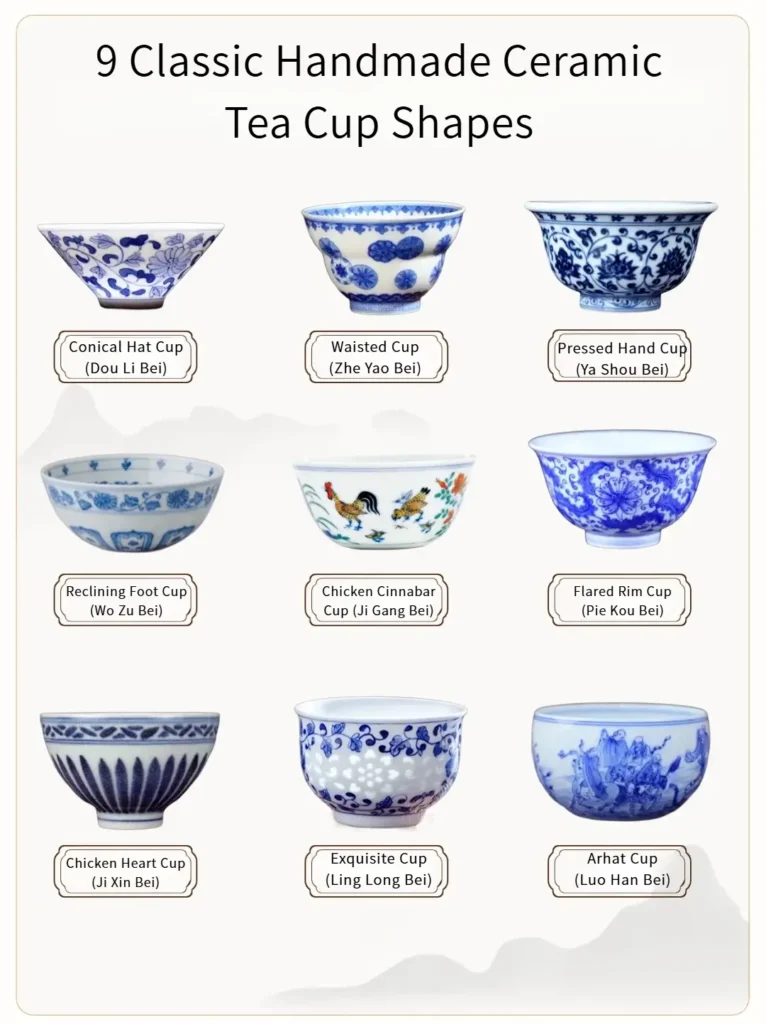
Handmade ceramic tea cups are more than just containers for beverages; they embody culture, art, and the skill of the potter. Each design, whether in shape, decoration, or tactile experience, reflects the artistry behind the piece. In this article, we will explore 9 classic handmade ceramic tea cups shapes, each showcasing unique characteristics and cultural backgrounds, ideal for tea enthusiasts and ceramic collectors.
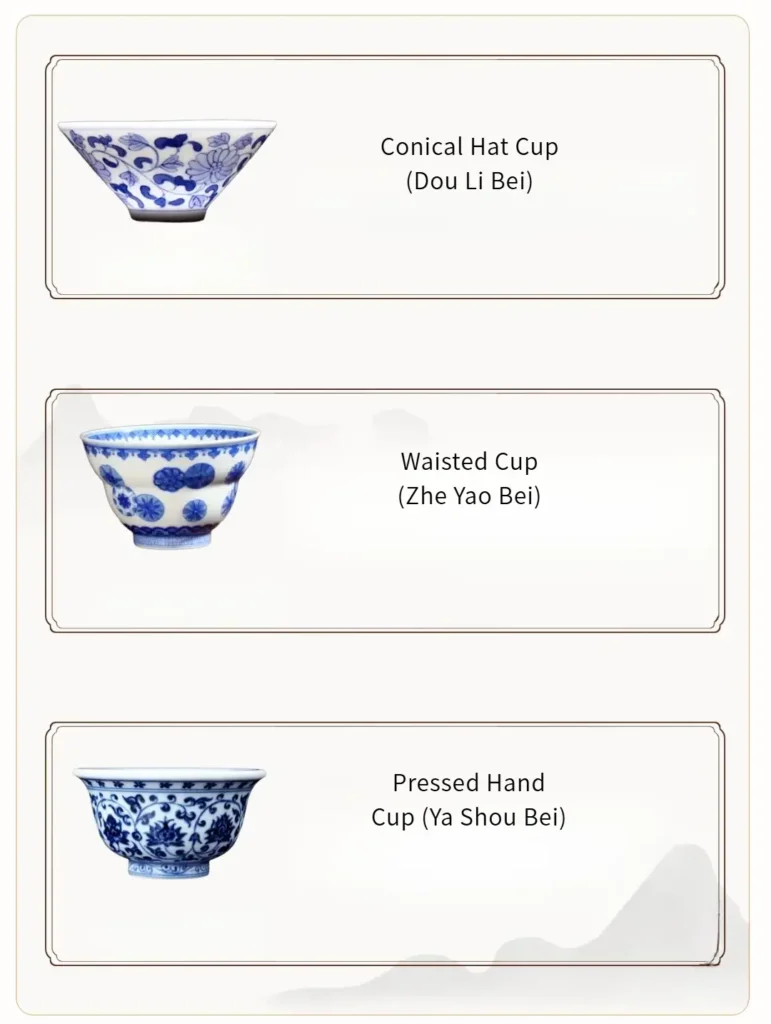
Conical Hat Cup (Dou Li Bei)
The shape of this cup resembles a conical hat. It features a small foot and an open rim, with simple and elegant lines on the body.
Waisted Cup (Zhe Yao Bei)
Also known as the “Fu Lu Cup” (symbolizing good fortune), it gets its name from the cut surface resembling half of a gourd. The height is moderate, with a noticeable inward curve in the body, resembling a bent waist.
Pressed Hand Cup (Ya Shou Bei)
The rim is flat and slightly flared outward, with almost vertical side walls. The lower part of the body tapers inward, with a circular foot. When held in the palm, it gives a distinct “pressed” feeling, hence the name “Pressed Hand Cup.”
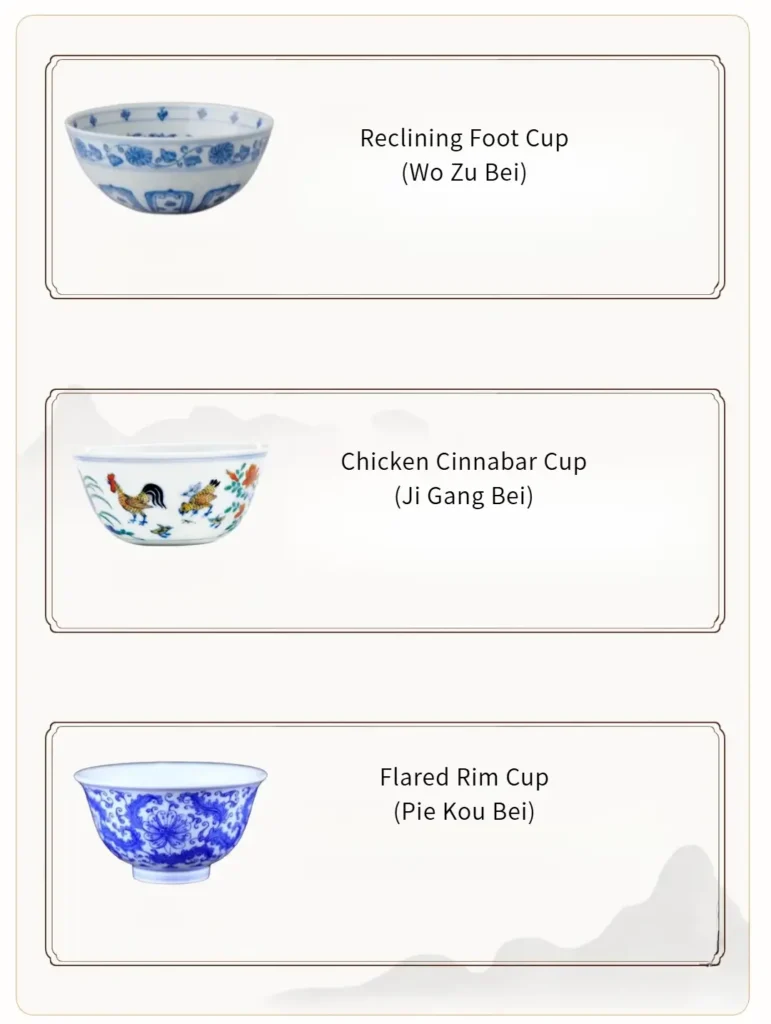
Reclining Foot Cup (Wo Zu Bei)
The bottom of the cup lacks a traditional foot ring and instead has a concave reclining foot. There are many varieties of this style, including blue and white, doucai, wucai, white glaze, pink glaze, and ink colors.
Chicken Cinnabar Cup (Ji Gang Bei)
This cup features vivid underglaze blue and overglaze five-color decorations. The open rim and shallow body complement the unique reclining foot. It showcases the famous “Chicken Cinnabar” pattern, believed to have been designed by Emperor Chenghua himself.
Flared Rim Cup (Pie Kou Bei)
The rim of the cup slightly flares outward, creating an elegant curve. The body tapers slightly towards the base, ending with a rounded foot. This timeless design has been a staple throughout history.
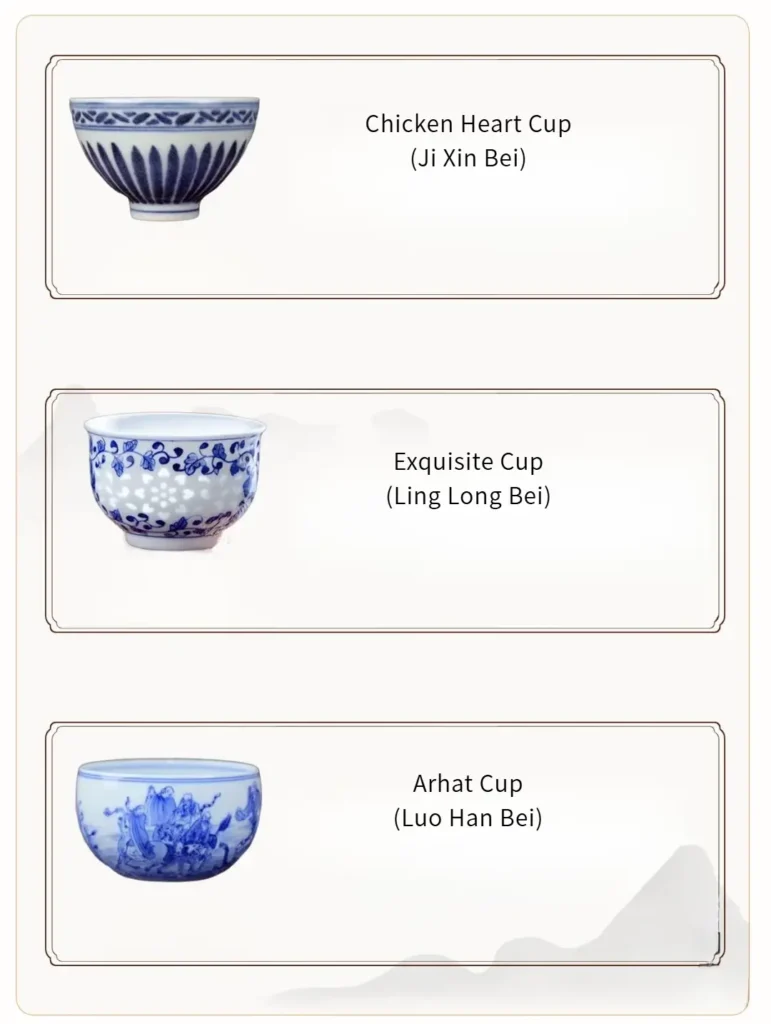
Chicken Heart Cup (Ji Xin Bei)
The cup has an open rim, with the body tapering inward beneath the rim and a slim base. It is named the “Chicken Heart Cup” due to the small raised bump at the bottom resembling a chicken heart.
Exquisite Cup (Ling Long Bei)
The potter carves delicate eyes into the clay using a blade, then fills them with intricate glaze. The “exquisite eyes” effect highlights the play of light, and this porcelain is known as “cabbage glass” in Western terms.
Arhat Cup (Luo Han Bei)
The design resembles the copper bowls used in temples. The body is round and thick, with a slightly inward-curving rim, creating a visual sense of stability.

